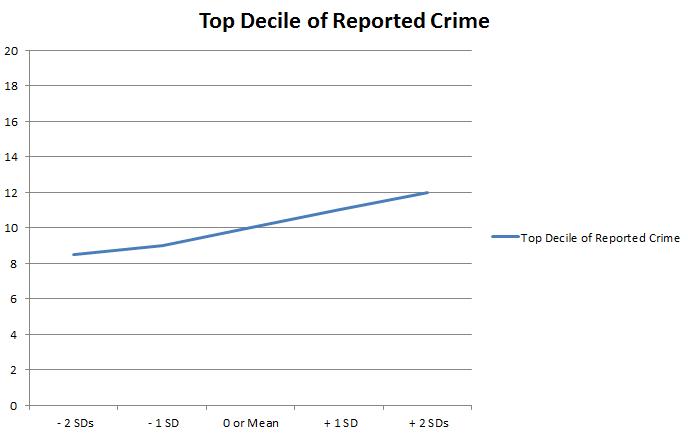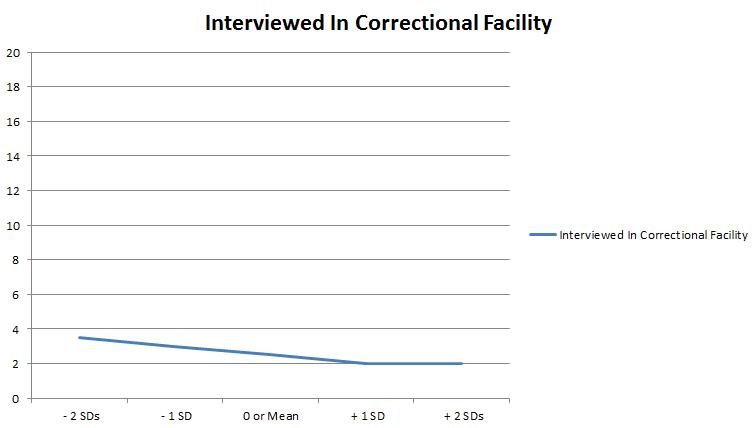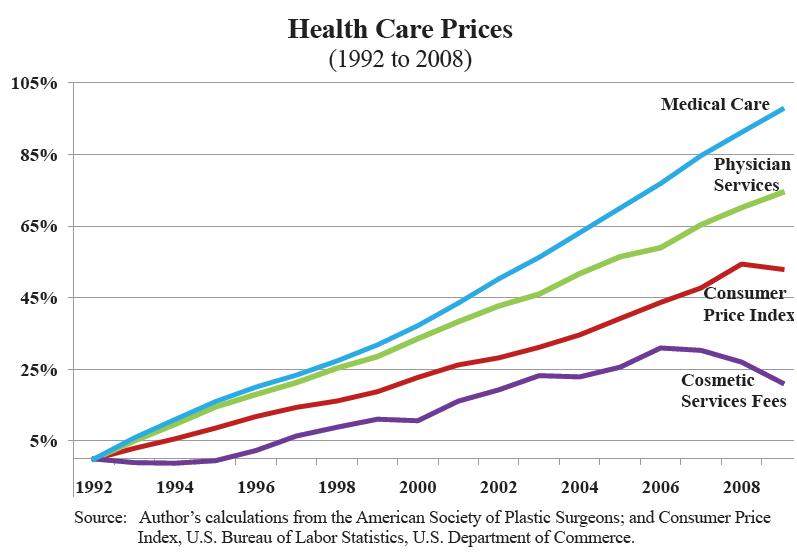
This post speaks to the eleventh chapter in the book, “The Bell Curve.” It is here that the authors take a look at the impact of SES on crime and criminality in the NLSY study. Again, in the early chapters of the book, the authors only look at white members of the NLSY. Data pulled for the criminality is further restricted to men. The data is presented below.
Data on crime can be hard to obtain. Many times an individual can be “successful” at crime and not be caught. This would reduce the instance of crime and present a challenge in reporting group patterns. In an attempt to overcome this shortcoming, the book uses two classifications:
- Self reported crime
- Being interviewed in a correctional facility
The impact of SES on the first, self-reported crime is shown here:

While the impact of the socioeconomic status of the parents of the men interviewed is low, less than 4 points, it’s interesting to note that the trend is reversed from what we might expect. The lack of significant SES impact follows as demonstrated below.

Here it shows that SES plays an even smaller role in determining criminality.
As I mentioned, this is the 11th chapter in the book. Chapter 12 deals with civility and citizenship. After reading the chapter, I was left with the feeling that I was reading a filler, one more chapter to fill a book. As with crime before it, the data presented was sparse and, in my opinion, unfulfilling compared to the earlier chapters and data.
Then comes Chapter 13.
When I picked up the book I was looking for books on “How to Raise Chickens” as a result of a post of mine some time back. I saw the book on the shelves and was taken by the title. I bought it and it was immediately relegated to my stack. Some time later, Boortz was speaking about the author and I decided I better begin the book. At this time I was still unaware of the controversy of the book. Then I posted on it. I was then made aware of the controversy.
It’s chapter 13 where that controversy begins. It’s here that the authors go into the subject of racial disparities, if they exist, between races. In the book, the authors explicitly put pen to paper and ask, rhetorically for us, why should we explore this topic, one so painful and emotional? They gave an answer, however, I was struck by the question.
As a result, I won’t go there.
Much of the talk I talk here at TarHeel is, or may be, emotional. But it’s easy political kinda stuff. Shit we can all agree is fun or enjoyable to debate. But race is different. I have neither the expertise, the knowledge or the education to be able to talk about this subject with anything resembling expertise. And while I think it’s important to talk about the painful experiences of race, I feel it’s CRITICAL to bring an expert’s touch to the subject of race and IQ.
I don’t have that expertise.
With that said, I understand the controversy surrounding the book. It IS controversial. However, I need to point out that the first 13 chapters didn’t discuss race even one time. And as a I read those first 12 chapters, I was struck by the straight forward and powerful arguments presented.
The next series of posts on this book will go back to Chapter 1 and revisit each until we get to the 11th chapter again. At that point, I’ll stop.











